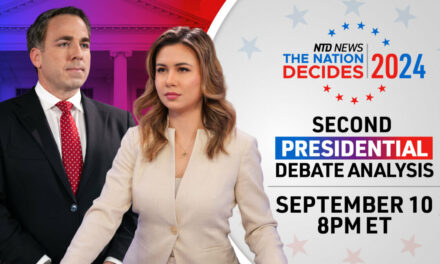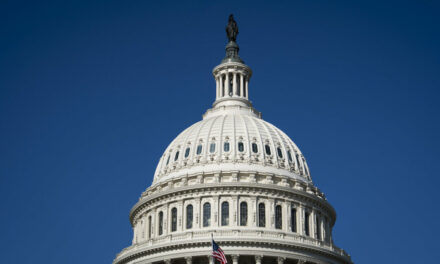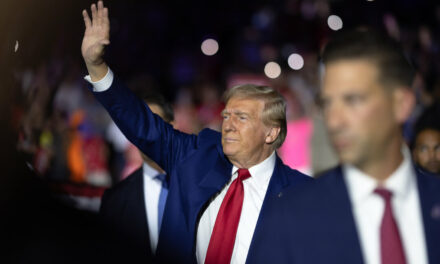We support our Publishers and Content Creators. You can view this story on their website by CLICKING HERE.
Sen. Roger Marshall (R-Ohio) called on Homeland Security’s inspector general to look into claims that the Secret Service ‘denied requests’ for more security.
The Department of Homeland Security (DHS) watchdog that is investigating the Secret Service’s handling of the assassination attempt against former President Donald Trump in July has been asked to broaden its probe.
He cited media reports that alleged that the Trump campaign had requested—on several occasions—additional snipers and teams at outdoor events, including at a rally in July 2023 in South Carolina, and sporting events.
Initially, the Secret Service denied allegations that requests were denied but later said in a statement that it had declined to provide the campaign with some additional resources. Secret Service communications chief Anthony Guglielmi told CNN that in “some instances where specific Secret Service specialized units or resources were not provided, the agency made modifications to ensure the security of the protectee.”
Marshall’s letter said the DHS inspector general should expand its work to probe those reports and determine why Robert F. Kennedy Jr. was denied Secret Service protection for months as he ran for president as an independent candidate.
The senator asked that the agency “examine the role of every individual responsible for decisions” that were made in the lead-up to the shooting. He also said the office should launch an investigation into Secret Service assignments involving the former president, whom he described as a “high-risk protectee,” and whether those agents have any “performance problems.”
In a statement to The Epoch Times, Marshall said that “there are still no answers or accountability” after the shooting, and that “we must leave no stone unturned” to “ensure this never happens again.”
The inspector general is looking into the security preparation for the event before the shooting took place. The alleged shooter, Thomas Matthew Crooks, was shot and killed by Secret Service snipers soon after he allegedly opened fire on the rally. One of the bullets struck Trump’s ear. A rally attendee was killed and two others were injured.
In a brief notice posted to the DHS inspector general’s website in mid-July, the agency said the probe’s objective is to “evaluate the United States Secret Service’s (Secret Service) process for securing former President Trump’s July 13, 2024 campaign event.” The agency also said on Sept. 11 that it is launching a review of the agency’s Counter Sniper Team’s “preparedness and operations.”
“Our objective is to determine the extent to which the Secret Service Counter Sniper Team is prepared for, and responds to, threats at events attended by designated protectees,” the inspector general’s office said.
President Joe Biden in July said he was ordering a separate review of the security at the rally.
The Secret Service’s then-director, Kim Cheatle, faced an intense congressional hearing in which lawmakers asked numerous questions about the agency’s preparations. Later that week, Cheatle resigned, and an acting director has since taken her place.
Questions have emerged about why the Secret Service allowed a gunman to get into such a close position to fire at a former president and why the roof on which he was perched was not secured.
Meanwhile, the FBI, which is investigating the assassination attempt, has yet to identify a motive.
The Secret Service has roughly 7,800 staff members and is responsible for protecting presidents, vice presidents, their families, former presidents, their spouses and minor children under the age of 16, and a few other high-level Cabinet officials such as the Homeland Security secretary.
The Epoch Times contacted DHS for comment on Sept. 11 about Marshall’s letter but didn’t receive a reply by publication time.
The Associated Press contributed to this report.

 Conservative
Conservative  Search
Search Trending
Trending Current News
Current News 







